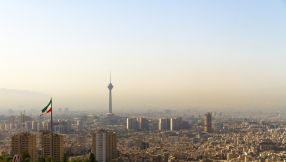Israel has removed metal detectors from the historic al-Asqa mosque in Jerusalem after days of violence and protest over the holy site, but Palestinians have rejected the new security measures.
Recent days have seen the bloodiest clash between Palestinians and Israelis in years, in response to Israeli security surrounding the historic al-Asqa mosque at the Temple Mount in Jerusalem's Old City.
Divisions began after gun violence in the area on July 14 saw two Israeli police guards and three Palestinians killed. Israeli forces initially closed access to the mosque, making traditional Islamic Friday prayer at the site impossible, and closing the site for the first time in decades. They later opened it with precise security measures, allowing only men over 50 and women of any age, with metal detectors and searches of anyone regarded suspicious.
Palestinians called for a 'day of rage' on Friday when Israel's Prime Minister Benjamin Netanyahu said metal detectors would not be removed from the site. Violent clashes on Friday and Saturday saw the deaths of three Israelis and four Palestinians, and prompted a session of the UN Security Council to address the crisis.
Today Israel has removed metal detector gates in favour of CCTV cameras, a decision made by Netanyahu's security cabinet this morning after hours of deliberation. On Sunday a similar deliberation had declared that devices would stay put.
However, Palestinians have said the security measures are still unacceptable. Many Palestinians perceive any such measures as a foreign imposition and an Israeli attempt to control an Islamic centre in Jerusalem. While the sacred Islamic city of Mecca uses metal detectors for security, such measures do not carry the divisive subtext of being an Israeli imposition on a Palestinian site.
'We reject all obstacles that hinder freedom of worship and we demand the return to the situation where things stood before July 14,' Palestinian Prime Minister Rami Hamdallah told his cabinet in Ramallah, in the Israeli-occupied West Bank.
The Waqf, the religious body that runs Muslim sites in the Al-Aqsa compound, said worshippers would continue to stay away from the area and pray in the streets outside instead.
A Sunday shooting at the Israeli embassy in Jordan on saw an Israeli security guard attacked and two Jordanians killed. Jordan's King Abdullah has also called for a return to the status quo active before July 14.
Israel's security cabinet also this morning announced 100 million shekels ($28 million) would be allocated for additional policing resources over the next six months.
Known to Muslims as the Haram-ash Sharif, the Temple Mount is one of the most important religious sites in the world, and has been venerated for millennia. Within it, the al-Asqa mosque is the third-most sacred site in the Muslim religion.
Additional reporting by Reuters













